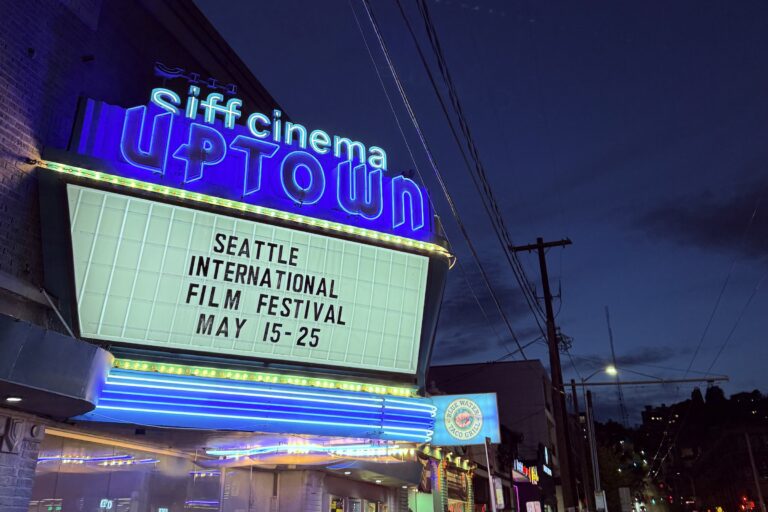The in-person portion of SIFF’s 51st Seattle International Film Festival ended on Sunday with the Golden Space Needle Awards and a full day of theatrical screenings. Never fear, this year’s “Escape to the Reel World” continues through June 1st online with a substantial portion of the program available for streaming (included for most pass types, or $20 individual films).
As the cinematic vacation draws to a close, the SunBreak team gathered our thoughts on this year’s festival.
Overall take on this SIFF’s “Escape to the Reel World” for their 51st festival?
What number would you click on this year’s new QR-code scoresheet?
Morgen: 4 – It was really great and I had the time to really dig into the offerings this year (but that’s more a me thing than SIFF). Speaking of QR codes, I love this idea for a lot of reasons, mainly easier for staff to deal with and no more paper waste. Only one hitch, the wrong QR code was shown in a venue that didn’t have very good connectivity, so when I went out and was about to leave the parking lot I realized I had “best director” and I couldn’t really go back and get the correct QR code for a film I really loved. It was probably a combo of user error and volunteer error but if that was the only issue, that’s a pretty good track record for a new tech step in their process. Otherwise, I didn’t see any films I really disliked and quite a few that I enjoyed or even loved.
Josh: For what it’s worth Sundance and TIFF also have audience awards that don’t use paper ballots. As soon as a screening that you attended (or bought a ticket for) wraps, they send an email and ask for your vote. It’s way easier than remembering to scan a QR code and seems like it would get a wider sampling of the audience. I’m not sure how the QR system prevents ballot stuffing, but I’m just kinda paranoid.
Chris: 2 – I don’t really want to be “that guy,” but I found SIFF to be a little on the underwhelming side this year. There weren’t any tributes or high-profile guests or any consensus on what movies everyone needed to see.. It might just be that SIFF went all-in last year for SIFF 50 and had to scale back but this felt like what in sports is known as a “rebuilding year.” Last year, there were some movies like I Saw the TV Glow and Evil Does Not Exist that had a lot of buzz surrounding them and I don’t think there were any “must see” movies this year.
Josh: I had a nice time, so I’d give it a solid 3. But it does feel like they pulled out the stops for their fiftieth and that things were a bit more low-key for the fifty-first. I always feel like SIFF doesn’t have a strong identity beyond “a lot of movies”. The opening, closing, and guest spotlights help to give it shape. While this year’s selection of gentle crowd-pleaser Four Mothers for Opening Night was a step back from the absolutely stellar recent years (Thelma, Past Lives, Navalny), Closing Night shined with Sorry, Baby. It’s among my favorite films of the year and it was great to see it again, especially followed by a great Q&A with writer/director/star Eva Victor and SIFF artistic director Beth Barrett.
For the rest of the festival I tried to check out the Northwest-connected features (maybe an odd choice for an international film festival), catch up with movies that I’d missed at Sundance, and dip into some of the competitions. I definitely didn’t delve as deeply as I would have liked to; so I’m glad that a few of the movies that got a ton of praise from audiences and juries are showing up on streaming.
Tony: I think I’d give SIFF 51 a 3 overall. Unlike Morgen, I didn’t get a chance to really drink much from SIFF 2025’s well of riches: I only caught a measly 7 features in total. That said, I’d have to concur with Chris and Josh and admit that the fest didn’t feel as highlights-filled, or as cohesive, as last year. It wasn’t just my punishing work/life schedule outside of SIFF that ensured almost half of my SIFF screenings this year were archival/revival screenings.
Let’s get into it, the Golden SunBreak Awards: Best Narrative Feature

Josh: Not to be a broken record, but I really really adore both Twinless and Sorry, Baby, very different films about people dealing with trauma, told non-linearly, with writer-directors in starring roles, and note-perfect endings featuring understated but potent conversations between two people. I originally saw them at Sundance and still went back for encore screenings when they played to full houses at SIFF with directors in attendance. Both were equally, if not, more effective on second viewing, revealing new depths.
In my rankings for the Seattle Critics Award, I put Twinless at #1 just ahead of Sorry, Baby (which won the award). What can I say? Dylan O’Brien is terrific in two roles – both briefly as a cosmopolitan Portland gay and for most of the film as his straight Idaho hockey-loving brother who’s shellshocked with grief at the death of his twin. But it’s writer/director James Sweeney who pulls off the real miracle of generating sympathy as a lonely guy who unexpectedly gets what he wanted the most in the world and goes to increasingly outlandish means to hold on to it. Plus, I’m a sucker for a movie that cleverly deploys a forgotten one hit wonder (it took a repeat viewing to realize that, of course, it’s an earworm recorded by a pair of twin brothers) that makes its first appearance on a bromantic road trip from Portland to Seattle to see a Kraken game.

Morgen: I did my best this year to see films that had little to no hype, but looked intriguing. I found myself awash with varying degrees of entertainment and thoughtful narrative, but when I really thought about it and looked through my list, two in particular stand out. I am in the process of writing up a “combo” review, but The New Year That Never Came and Meeting Pol Pot were the most affecting for me. I’m typically drawn to comedies but there was a sad lack of films staunchly in this genre, so apparently stories about dictatorships were my fallback!
Just kidding, but I absolutely adore historical fiction, especially when it pulls from real events or at least impressions from the people who had been there. Both were well done and somewhat about the same subject-matter but from entirely different perspectives and locales. While Meeting Pol Pot was a loose recreation of events of a heartless, egotistical and seemingly petulant man being forced to face those that refuse to bow to him, The New Year That Never Came put you in the shoes of the everyday person fearing that one misstep will land them in prison or worse. Both very well done, entirely consuming and powerful in their own way.
Chris: I’ll abstain here as I mostly stuck to documentaries and have already sung the praises of By Design.

Tony: Again, I got next to no SIFF viewing time this year (ergo no evaluation from this corner about Josh’s beloved Twinless or Sorry, Baby). But from my cramped perspective, I can’t comprehend either one being better than David Fortune’s wonderful Color Book. The logline–recently-widowed black man takes his disabled son to a baseball game–can’t even begin to cover its unforced and hard-won emotional beats, how utterly cinematic it is (major shout out to Nicklaus Summerer’s breathtaking black and white cinematography), and how it captures an entire movie full of people being inherently, routinely kind to one another without ever being less than absorbing. It feels like some elegant, beautiful merger of John Cassavettes, Charles Burnett, and Kenji Mizoguchi, and I’m nursing an enormous movie crush right now.
Best Documentary?
Josh: Documentaries are always popular among SIFF audiences; so it was cool to see that this year’s Opening Night included an announcement of two million dollars in grants to support documentary filmmaking. I’m sure this program — now accepting applications — will reap reward in future festivals.
Chris: I focused on documentaries this year and despite some great efforts like Suburban Fury (which won the documentary jury prize), I found the selections incredibly frustrating because a large handful of docs I watched were concerned about being right politically first and entertaining fourth. This was one of those times when I wish there was less of a progressive hegemony in programming.

Tony: I only caught one documentary at SIFF 2025, so I’ll give Chain Reactions, Alexandre O. Phillippe’s solid reflection on The Texas Chainsaw Massacre’s cultural impact, the nod by default. It helps that it showcases observations from five insightful people (including Patton Ostwalt and Stephen King), all of whom bring very different interpretations/takes on the film’s social and personal impact to the table.
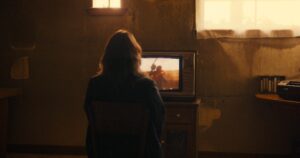
Morgen: I tried. I really tried to hit up more documentaries this year, and since I got to at least one, I succeeded. I don’t think that really gives me the ability to share a fair assessment of what SIFF had to offer in this category. However, I will say that BLKNWS: TERMS AND CONDITIONS was the most fascinating non-documentary documentary that I’ve seen in a long time. Gathering found footage, narrative segments, and interviews that took you into a world outside of our own. Not just as someone outside of the Black community, but something altogether foreign yet familiar, strange yet scrutable. I was swept up in the waves and let them wash over me as director Kahlil Joseph suggested when introducing his film at SIFF Downtown two Sundays ago.

Josh: Is BLKNWS: TERMS AND CONDITIONS a documentary? I’m not at all sure either. But I don’t think formal definitions matter. It was a mesmerizing mixtape and I’m extremely glad that I saw it in all its glory at SIFF Downtown. I’m not sure that it could’ve held my attention at home, but with the big screen, awesome sound system, and a bag of mixed chocolate popcorn at my side, I found it very engrossing to sink into the hybrid concoction and its framing of Black history in the context of an Afro-futurist trans-atlantic art biennale.
If I’m picking a more traditional documentary, I’d spotlight Remaining Native, a gorgeously shot first feature by Paige Bethmann (Haudenosaunee). I was moved by the way it linked Ku Stevens’s personal dedication to chasing the a spot in the most elite collegiate running program to the inspiration he took from his great grandfather’s escape from being forcibly removed from his family to attend an abusive boarding school for indigenous people. The perspective that Stevens brings to reckoning with the evil colonialist legacy that scarred his family and community’s history was both astoundingly mature and powerfully realized.

Special mention for Best Performances?
Chris: At the closing night gala, the number of times people I know asked me about “that chair movie” was strangely more than one, and for good reason. I was quite taken by By Design and thought Juliette Lewis was as good as anyone I saw in a SIFF film this year.

Morgen: There were a few performances that stood out for me and they were all young actors. Yukito Hidaka of Happyend (along with Hayato Kurihara playing his best friend) put on a stellar performance with depth and emotional rawness that enthralled me throughout the film. I also found impressive side-by-side performances in one of my most anticipated films, DJ Ahmet, in Arif Jakup as Ahmet and his younger brother Naim played by Agush Agushev. The latter performed his part in silence for over half the film, letting his adorable face and pained expressions speak for him.
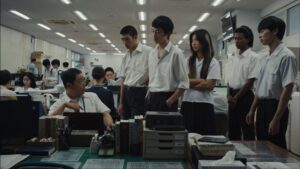
Josh: I’ve already hype the Twinless duo enough. So instead, I’ll give this one to Josh O’Connor for his turn as a wayward cowboy who’s seemingly lost everything in Rebuilding. It’s a reserved performance at the center of a quiet movie, but he’s at the center of a remarkable ensemble together, giving the story of tenuous hope springing from generosity and community amid desolation its most powerful beats. His young co-star, Lily LaTorre, was also an incredible discovery of the festival.

Tony: At the risk of numbing redundancy, I’ve got to point at Color Book for this. Much hay has been made about young Jeremiah Daniels as the son Mason. He is terrific (and, it must be said, a total natural on camera). But it’s William Catlett’s leading turn as Lucky, Mason’s weary but doting dad, that provides much of the movie’s emotional juice and resonance. The entire movie rests on Catlett’s shoulders and he’s nothing short of amazing.
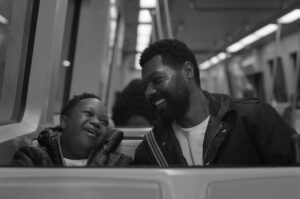
SIFF’s juries and audiences have spoken … our reactions to the winners:

Along with SIFF’s audience awards, the Fool Serious film fanatics and Seattle Critics also released lists of festival favorites. Here’s how they compare:
Golden Space Needle
(Audience Award)
NARRATIVE:
- Tinā,
- Twinless,
- Color Book
- DJ Ahmet
- Souleymane’s Story
DOCUMENTARY:
- Come See Me in the Good Light
- The Librarians
- Remaining Native
- Paul Anka: His Way
- Sally
BEST DIRECTOR:
James Sweeney, Twinless
BEST PERFORMANCE:
Abou Sangaré, Souleymane’s Story
Fool Serious
(Passholders)
NARRATIVE
- Waves
- Tinā
- Undercover
- John Cranko
- The Kingdom
DOCUMENTARY:
- Come See Me in the Good Light
- The Librarians
- Sally
- Blue Road: The Edna O’Brien Story
- Starman
Along with the audience awards SIFF’s juried competition winners included: Seeds (Official); Deaf (Ibero-American); The Crowd (New Directors); Invention (New American Cinema); Suburban Fury (Documentary); Summer’s Camera (Wavemaker).
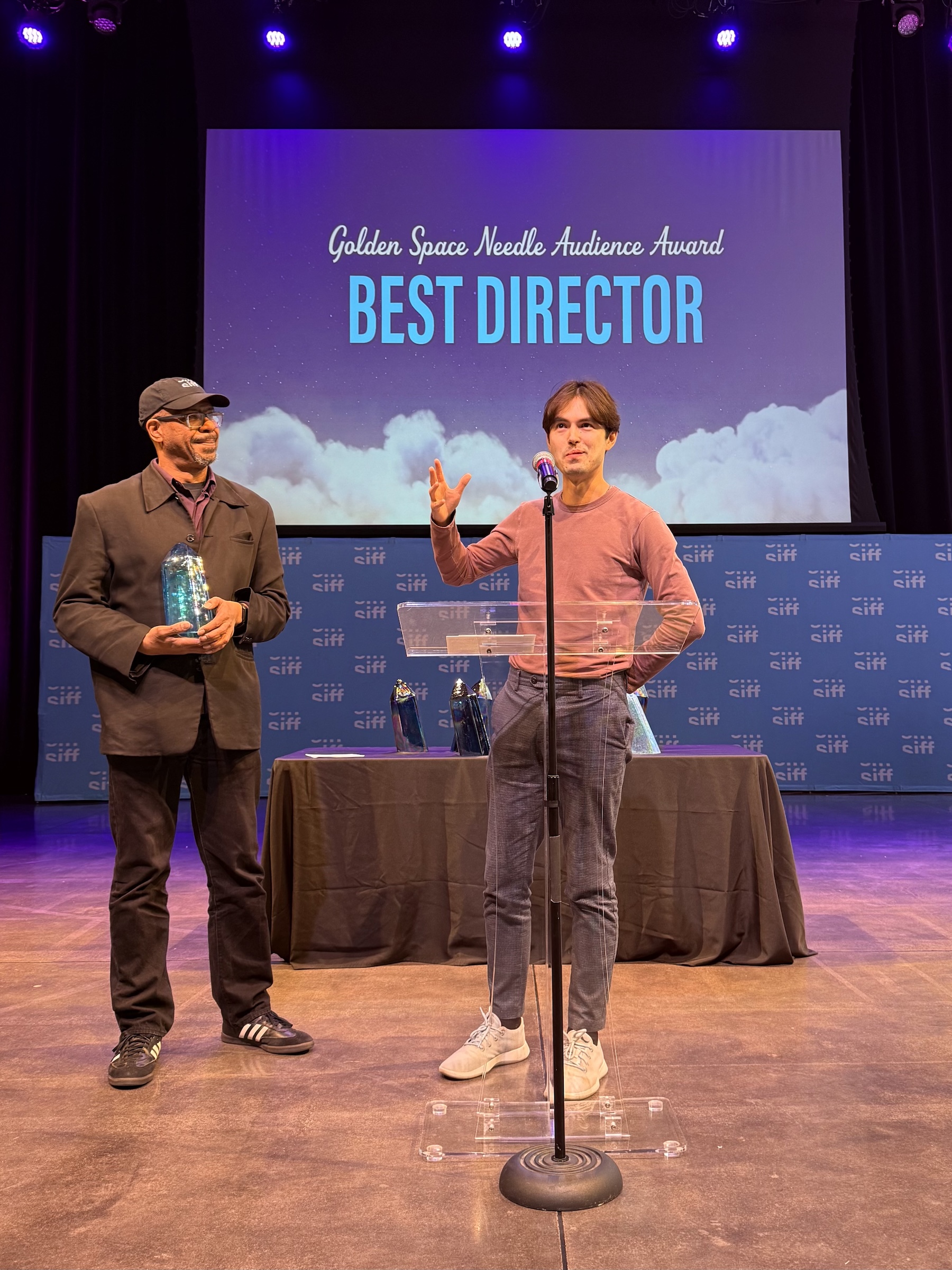
Josh: At the Golden Space Needle Awards, I think they said that both of the audience prize winners had the highest scores of all time. Maybe it was the QR code balloting? Both came in with average ratings around 4.95. It sounds like both had incredibly powerful screenings for those who made it into the sold out showings (I missed both).
Chris: Come See Me in the Good Light won the documentary award and I wasn’t surprised. I believe beloved local musician Brandi Carlile introduced the film at one screening and both were packed and on stand-by for quite a while. I didn’t try to navigate those crowds so I didn’t get to see it and cannot comment on whether or not I concur. The first runner-up, The Librarians, I did see and disliked it immensely. I was actually angry when I left the theater. It was about book banning in very conservative regions and is weirdly incurious about how right wing activists were able to amass so much political power to force censorship of books with LGBT or antiracist themes. I believe this censorship is wrong, obviously, but I want to know what is being done to fight it or even if there is anything but nominal opposition. Where was I going with this? Anyway, I’m glad the movie I didn’t see won.
Josh: I agree that The Librarians was frustrating, but my rejection was less anger at the movie than at the people whose seemingly-simpleton technique of yelling “porn and grooming” have been so effective at making the lives of school librarians a living hell for simply putting a few books in their collections to include all students. I would’ve loved to see it end with a call to action or a fragment of hope, but maybe that’s too optimistic for the reality of the situation.
Morgen: Funny enough, all but one of the films that I watched (a whopping 19), didn’t land anywhere near the top in any category. I do find that disappointing, but this is par for the course for me. Again, I aim for the films that have nearly no hype but look to be a solid story or interesting visuals (or both). Happyend, The New Year That Never Came and Meeting Pol Pot were all captivating but just didn’t catch the eyes or hearts of the voters. Admittedly, I am particularly saddened that I didn’t catch Souleymane, it looked beautifully painful, thoughtful and enlightening and with the attention it got, it’s a safe bet I’ll get the chance to watch it in some other venue/online source soon.
Tony: Again, I don’t have a lot of skin in the game here, but I’m glad to see that Color Book received Third Place laurels from the critics and audience.
Anything you’re hoping to catch up on during Streaming Week?
As noted above, a selection of SIFF’s in-person program is available online through June 1st, either as part of pass holder privileges or through individual ticketing.
Chris: I want to try to catch some of the GSNA nominees and runners-up. I didn’t get the chance to watch as many features as I would have liked so I’m going to try to use Streaming Week for that.
Josh: I heard nothing but gushing praise for Color Book, both from Tony and among the chattering masses on Sunday at the Golden Space Needle Awards reception; so that’s at the top of my list. The cast and crew even made an appearance (after having received a standing ovation at the festival’s final screening). The young actor who plays the son introduced himself to me as follows: “Hi, I’m Jeremiah and I am a movie star.” Instantly charming!
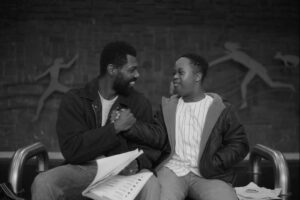
Chris: Josh, that’s adorable! I wish I could’ve been at two places at once to see that, and maybe I’d get to meet Jeremiah too. Alas, my consolation prize was being across the way in Seattle Center watching one of the most fun basketball games I’ve ever been to.
Josh: I’m also glad to see that Souleymane’s Story is on the streaming platform this week. It figured in a lot of top five lists and won the audience prize for performance, so I’m also going to try to check that one out.
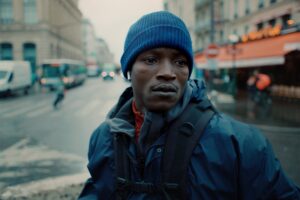
Tony: Like Chris, I’m looking forward to getting caught up on some of the GSNA recipients/runners-up. I’m also a Jean Cocteau fan, so the doc of the same name’s on my list; and I wanna see what the big-ish deal about John Cranko is.
Morgen: I’m currently trying to watch Spermageddon (I just have to), The Chef & The Daruma and possibly Waves. Looks like the only films on my list that are streaming is Waves, but I highly recommend checking out Come Closer, Boong, and Hanami from the list of available films.

Final thoughts … Any wishes for SIFF’s future?
Morgen: I had a great time this year getting lost in all the films where I typically don’t have the time or the mental capacity to take advantage of all the offerings. You can’t see them all, it’s true, but I gave it a shot… I am also a bit bummed I didn’t catch any shorts since that genre is typically overlooked. There’s really nothing to complain about and I’m not sure what they could improve upon except to continue to strive for as much diversity as possible. I definitely missed true comedies this year where there were dark, odd and drama filled comedies instead. There just wasn’t much that made me laugh my butt off and right now that is sorely needed. Can’t have it all though!
Chris: I don’t think the days of an almost-month long SIFF are ever coming back. Yes, I know I bring this up every year. Still, I wish that SIFF could find time in their truncated schedule for a centerpiece film in between the opening and closing features.
Josh: I think ten days is plenty, especially with the limited online encore, but I do agree that having more formal festivities in terms of gala screenings, splashy guest tributes, or centerpiece-style events dotted throughout would give the expansive festival a clearer sense of structure. (My first real SIFF experience was way back when they celebrated the big 3-0 and it felt like there were parties every night).
There’s a bit of a paradox in that SIFF excels in programming so many films, with such diversity of interests, that while there’s definitely something for everyone, there’s rarely anything for everybody. There’s nothing wrong with a cinematic vacation where everyone follows their own interests, but I often wonder if moving one or two of competitions to the forefront or trying to score a few buzzy premieres could contribute to a sense of cohesion or identity?
Tony: I’m with you 1000% on missing the weeks-long SIFFs of yesteryear, Chris. The extra stretch meant that each year’s fest had time to evolve and develop its own character. Buzz movies seem to gather momentum more organically with the extra time, too. I know it’s not the remotest bit realistic to pine for those days, but I do miss them. Kudos to SIFF for moving heaven and earth to give us the 10 days they did.
Faults and all, the Seattle International Film Festival still makes me happy to be alive, and a cinephile, in these very trying times.
Scorecard: Everything we saw at SIFF:
As a wrap-up, here’s a list of everything we collectively saw and the star ratings we’d have given had we remembered to scan the QR codes. Links to all of our coverage of SIFF can be found at our ever-evolving SunBreak at SIFF Index.
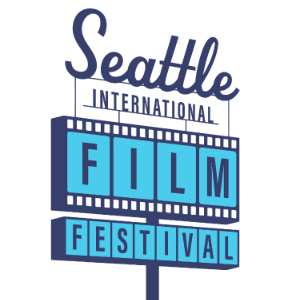
The 2025 Seattle International Film Festival runs from May 15-25 in person and May 26-June 1 online. Keep up with our reactions on social media (@thesunbreak) and follow our ongoing coverage via our SIFF 2025 posts



